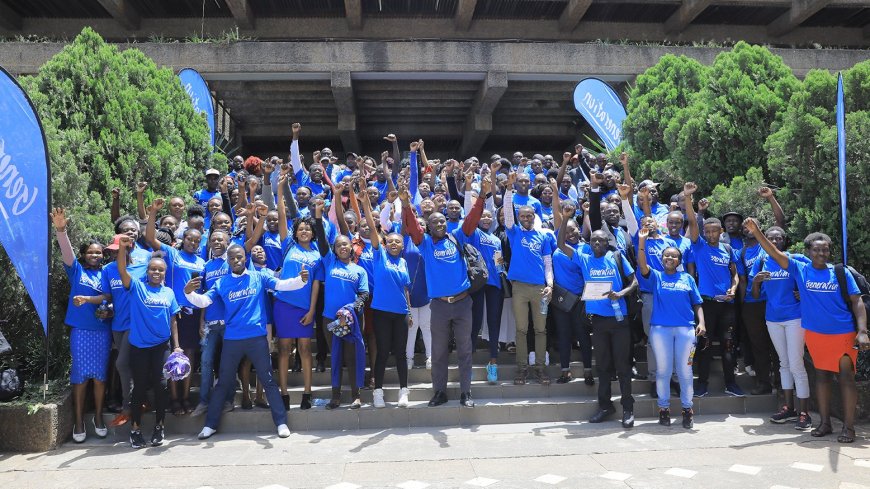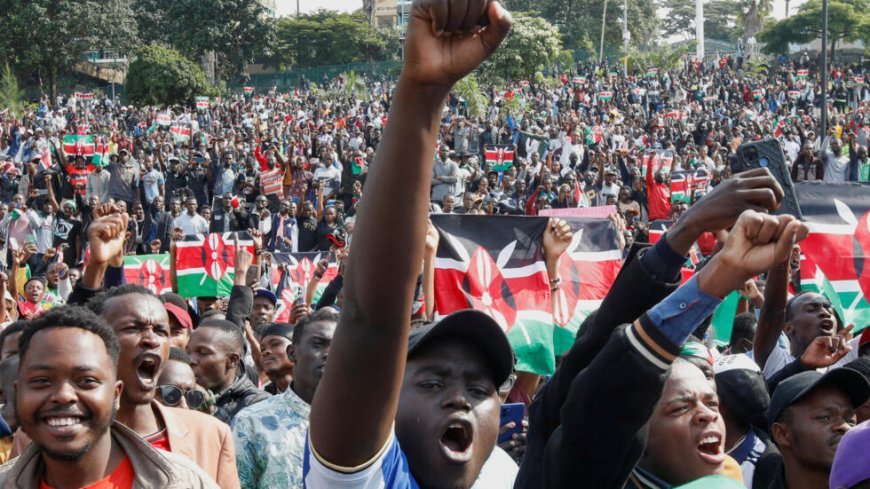The Role of Generation Z in Shaping Kenya's 2027 Political Future
The Kenyan political landscape in 2027 is set for a dramatic shift, largely driven by Generation Z's rise as an influential political force. This generation, known for its tech-savviness, progressive outlook, and active involvement in social causes, is ready to disrupt the traditional political dynamics that have long held sway in Kenya. Here’s how Gen Z is poised to influence the country’s political future.
As Gen Z steps into the political arena, the 2027 election is expected to be more digitally focused than any before it. Unlike older generations who leaned on rallies, physical campaigns, and conventional media, Gen Z is likely to take control of the digital space. Platforms such as TikTok, Instagram, and X (formerly Twitter) are set to become key battlegrounds for political discussions, with viral content shaping the national narrative.
Their expertise in digital communication gives Gen Z the upper hand in promoting ideas, questioning political candidates, and organizing campaigns. Traditional political manifestos may give way to shorter, more engaging formats like memes, videos, and infographics. Candidates who fail to keep up with this shift risk being sidelined, as Gen Z voters seek leaders who exhibit authenticity and forward-thinking values.
Historically, Kenya’s political environment has been influenced by ethnic and regional affiliations. However, Gen Z appears less tied to these divisions. Raised in an increasingly globalized and urbanized society, their concerns are centered around issues like climate change, unemployment, social justice, and technology. As a result, the political landscape could evolve to focus more on issue-based politics rather than tribal allegiances.
The 2027 elections will likely spotlight candidates' positions on topics such as environmental sustainability, LGBTQ+ rights, gender equality, and economic reform—issues that resonate deeply with Gen Z voters. This generation, being more informed and critical, will demand transparency and accountability from politicians.
Gen Z’s dissatisfaction with the traditional political establishment could pave the way for the rise of independent candidates and new political movements. The old guard may face competition from fresh, younger leaders who are seen as more in tune with modern Kenyan values.
Youth-driven grassroots movements may also gain momentum, advocating for causes like economic empowerment, devolution, and anti-corruption efforts. These movements, although less centralized, could challenge the stronghold of established political parties, causing a shift in the political balance.
Additionally, the 2027 elections will likely see an intersection of pop culture and politics, with Gen Z leading this fusion. Influencers, artists, and content creators may become key players in mobilizing the youth vote, especially in urban areas. The lines between entertainment and politics could blur, with celebrities and public figures shaping the election's discourse.
While Gen Z's influence is undeniable, challenges persist. Many young Kenyans in rural areas may not have equal access to digital resources or education, leading to disparities in political participation. This could spark discussions on representation and inclusion, as rural youth demand the same attention and opportunities as their urban counterparts.
For Kenya’s political elite, engaging this more critical and skeptical generation will be a challenge. Traditional tactics will no longer suffice, as Gen Z voters expect actionable solutions and measurable results.
In conclusion, the 2027 Kenyan elections will reflect the growing power of Generation Z, both in style and substance. Their digital expertise, progressive values, and demand for change will push political leaders to adapt or risk irrelevance. The future of Kenyan politics will be shaped by the shift from ethnic loyalty to issue-based politics, driven by a tech-savvy, motivated, and forward-looking generation.
What's Your Reaction?






























































